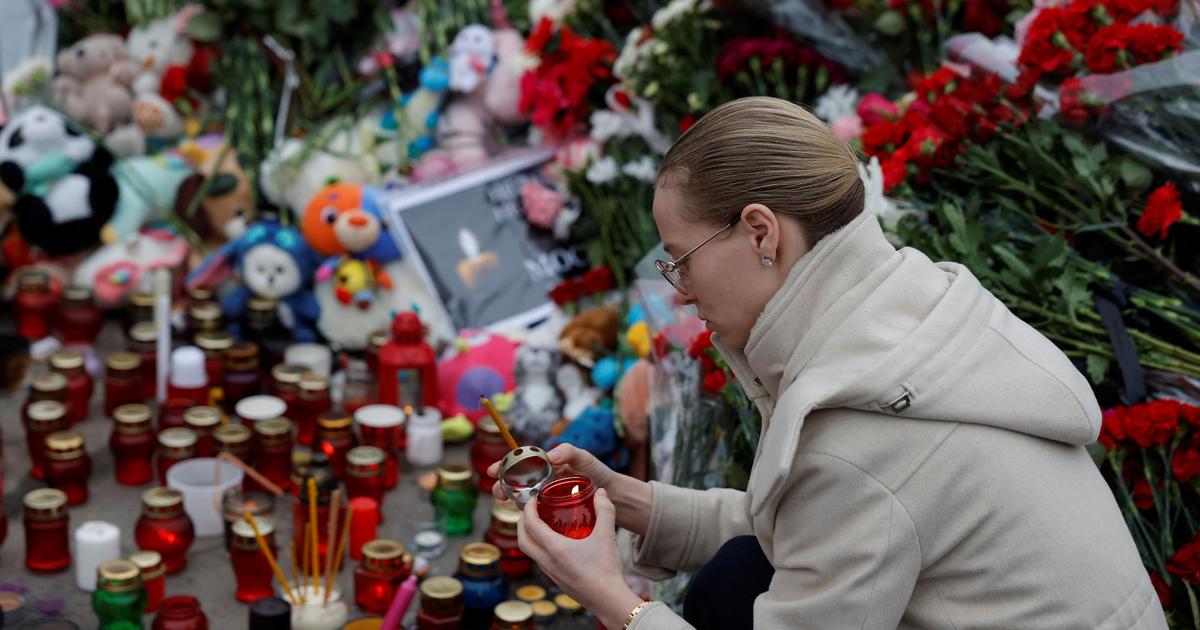Jean de Gliniasty is a diplomat, former French ambassador to Russia. Consultant and teacher, he is now research director at the Institute of International and Strategic Relations (IRIS) and notably published in 2024
France, a disorientated diplomacy
with L'Inventaire.
LE FIGARO.- The attack in a concert hall in the suburbs of Moscow is the deadliest in Russia since 1999. Is Russian society used to living with terrorism?
Jean DE GLINIASTY.-
Russia, since the Chechen wars, has lived in constant fear of attacks.
Since the bloody hostage-taking at the Dubrovka theater in Moscow in 2002 and at the Beslan school in 2004, which left several hundred dead, Russia has lived, in Moscow and elsewhere, to the rhythm of numerous jihadist attacks without those -these reach the number of victims recorded at Crocus Hall on Friday.
For about five years, however, a lull could be observed.
It ended in the tragic circumstances we know.
The traditional moral resistance of Russians is now being put to the test because the attack occurs in the context of the war in Ukraine, the bombing of industrial and military sites by Ukrainian drones, and sanctions taken by the West.
Any attack, after a moment of national solidarity, ultimately leads citizens to question security failures and the responsibilities of the authorities, especially when the government prides itself on maintaining order effectively, and justifies this title attacks on the rule of law.
Precisely on this subject, Vladimir Putin
had minimized the alerts of the American intelligence services a few days earlier
, even seeing them as
“blackmail”
...
History has no shortage of examples that show senior leaders can ignore warnings from allies, intelligence services or activists.
Without going as far as Stalin who had the German deserters who came to warn of the imminent Nazi invasion shot for disinformation, or Roosevelt possibly informed of the Japanese attack, we can cite Netanyahu who ignored the warnings about a breakthrough of Hamas in Gaza last October... leaders often find it difficult to give the importance they deserve to the mass of information they benefit from from all sides.
Read alsoMoscow attack: Vladimir Putin's tenacious silence on the Islamic State's claim
The fact that this information was given by the American adversary undoubtedly did not favor their credibility in the mind of Vladimir Putin.
Initially, the violence and cruelty of the attack will strengthen the solidarity of Russians around the leader, as has been observed everywhere else in similar circumstances;
but then power will have to be held accountable, in one form or another.
Does this attack risk accelerating Russian military engagement in Ukraine?
The fact that the Kremlin did not cite the Daesh press release, and that on the contrary the terrorists' attempt to flee to Ukraine was highlighted by the head of state, seems to indicate that the attack will be used to strengthen exceptional measures and the war against Ukraine.
There is already talk of new laws against saboteurs or to reinstate the death penalty.
Putin's spokesperson has just pronounced the term
"war"
, called until now
"Special Military Operation"
in Ukraine, and the authorities may be tempted to proclaim martial law in the name of external danger, or even additional mobilization (even if he doesn't need it currently).
Putin's spokesperson has just uttered the term "war" in Ukraine.
The attack in any case will facilitate acceptance by the Russians of a tightening of internal measures, and an intensification of military actions against Ukraine.
Can the wave of compassion and condemnation from around the world,
including Europe and the United States
, initiate a thaw with Moscow?
Messages of solidarity and condolences from all over the world, and in particular from Western adversaries (United States, France, Poland, Germany, etc.) are addressed to the Russian people and not to the authorities.
They will perhaps make Russians regret the break with the West and will have a long-term effect.
But they will change neither Russia's war plans in Ukraine, nor the support the government enjoys from the majority of Russians who are convinced that Russia is facing the conspiracy of the "collective West", in the words of the Kremlin.
In fact, Putin intends to obtain additional freedom of action in all areas.

